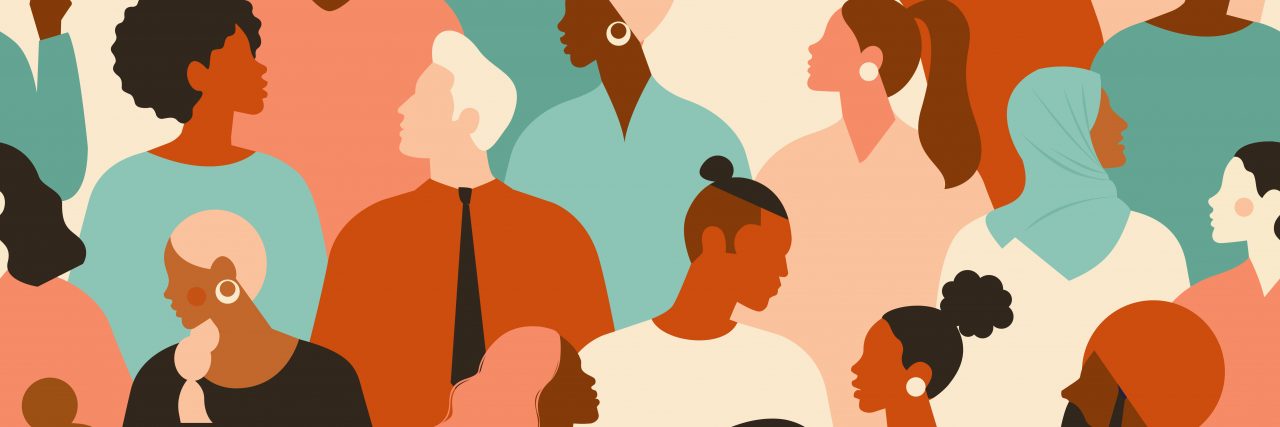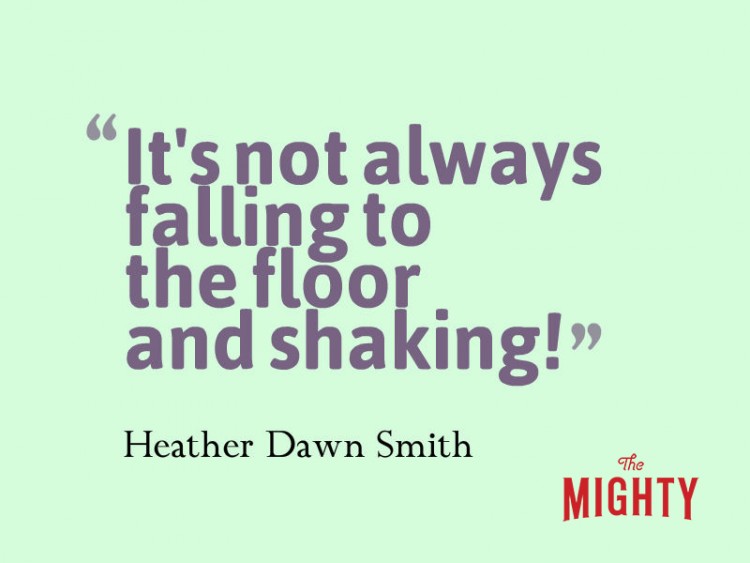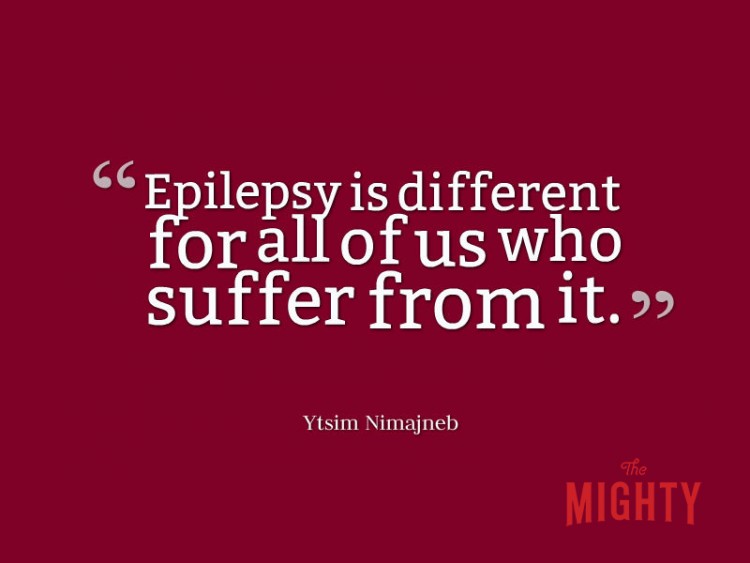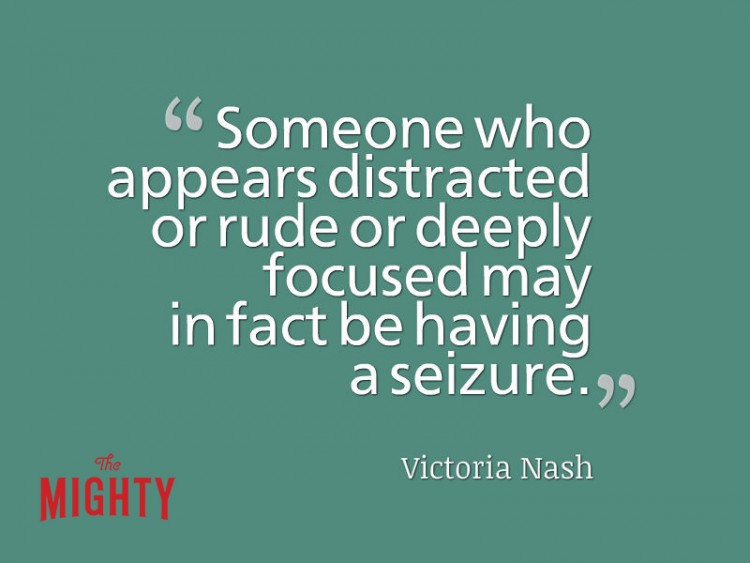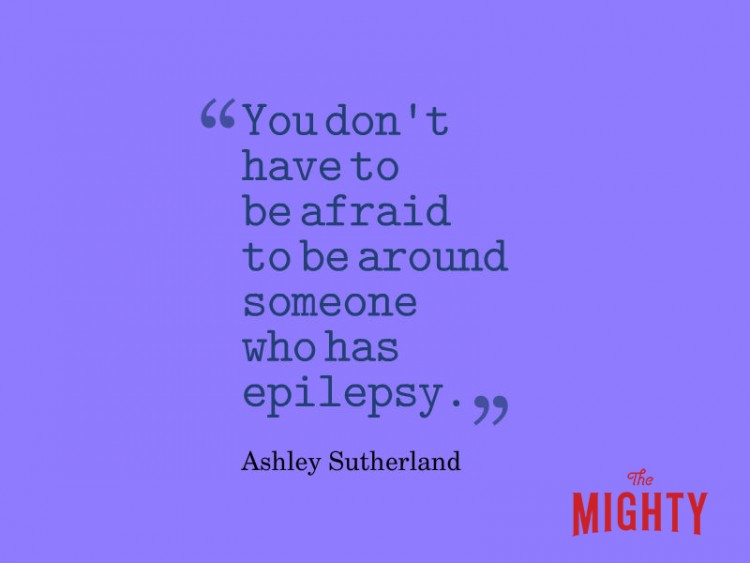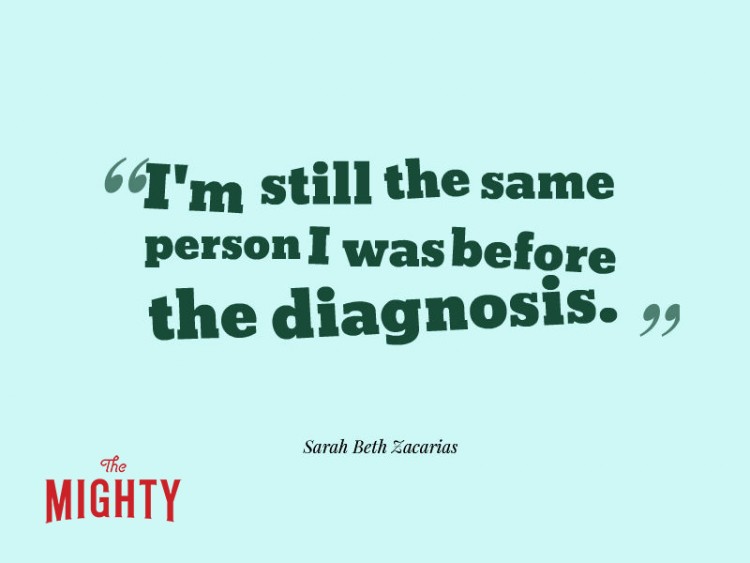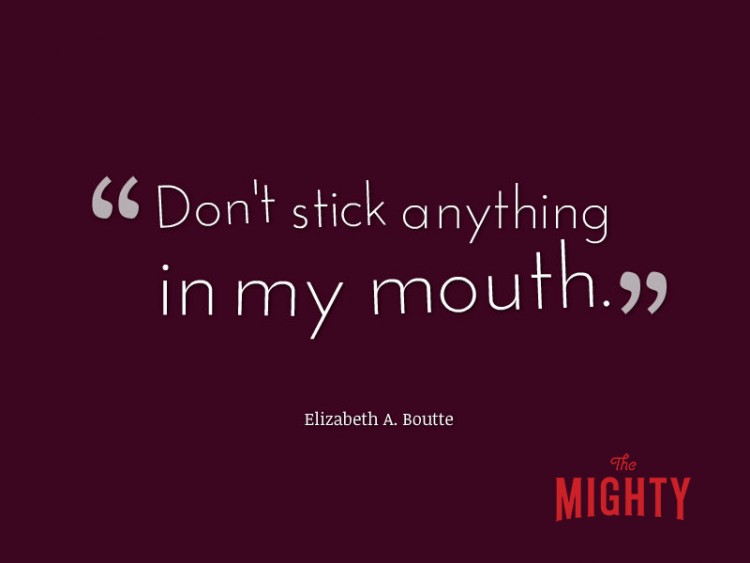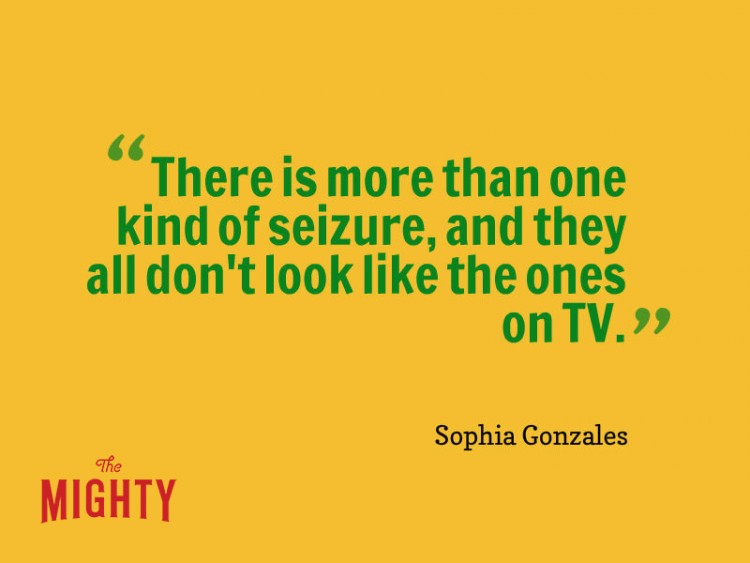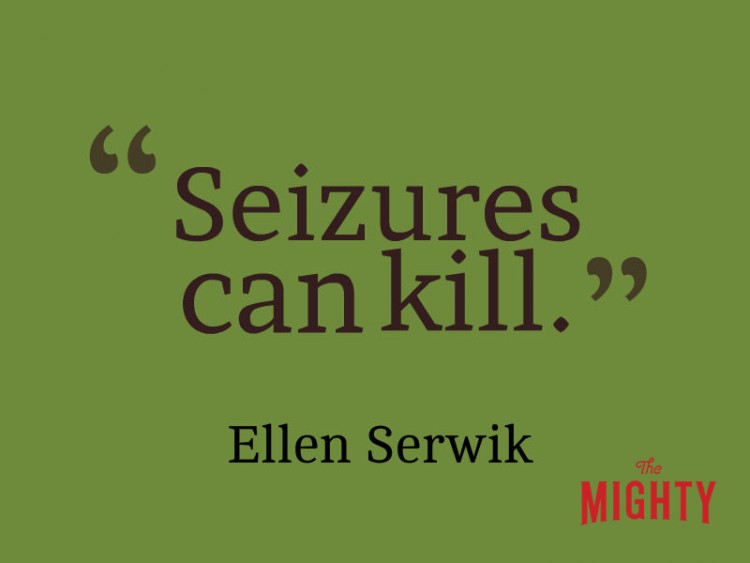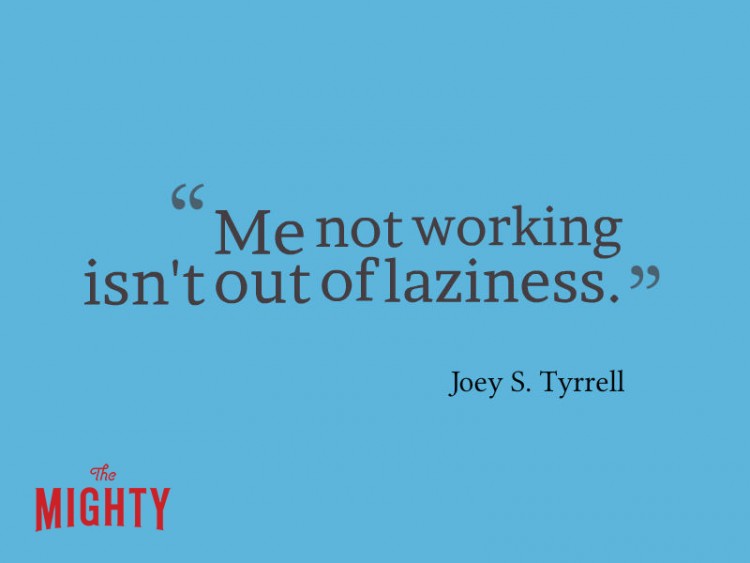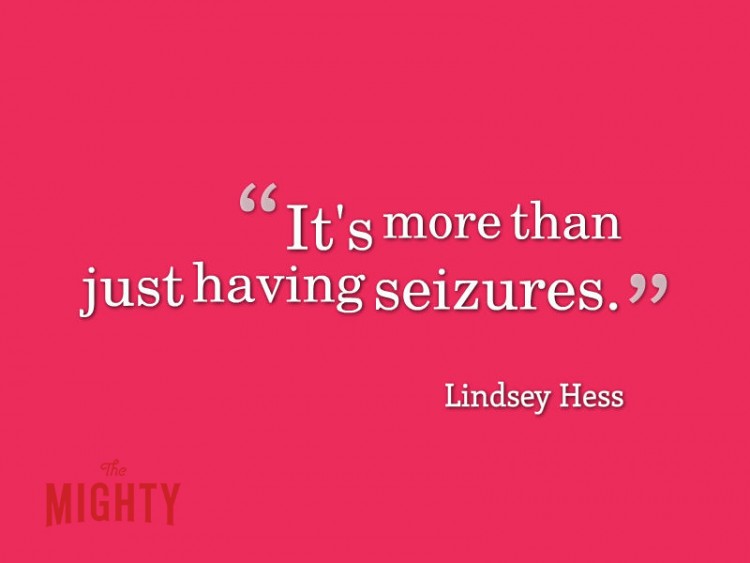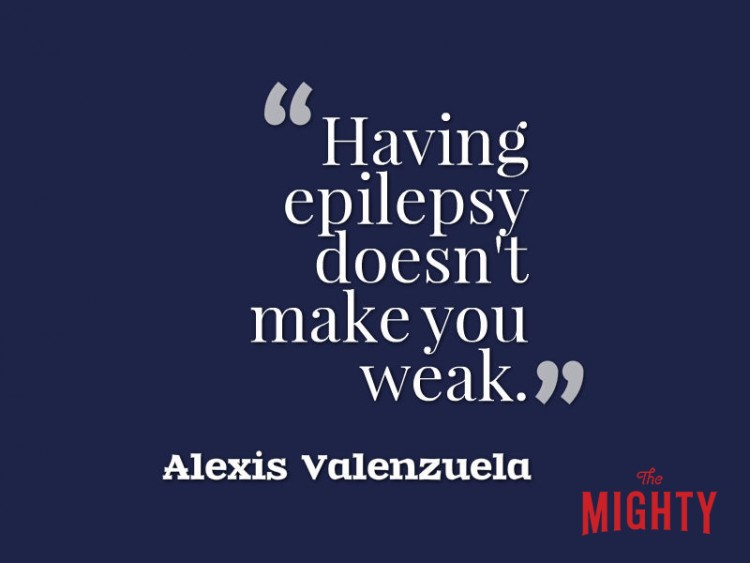Epilepsy is a neurological condition that affects the body’s nervous system; it’s also known as a seizure disorder. An estimated 65 million people in the world have epilepsy, and nearly 3 million people in the U.S. live with the disorder.
Epilepsy is generally diagnosed after an individual has had at least two seizures separated by at least 24 hours that were not caused by a known medical condition, according to the Epilepsy Foundation. Though medications can help manage the seizures for many, one-third of people with epilepsy deal with uncontrollable episodes because no treatment works for them.
Other relevant stories:
• Can Flashing Lights Cause Seizures Without Epilepsy
• Can Students with Epilepsy Participate in Sports
• Can Epilepsy Cause Memory Loss
Despite the large number of people it affects, epilepsy and seizures are widely misunderstood, so The Mighty teamed up with the Epilepsy Foundation to ask their community what they wish others understood about the disorder. Here’s what they had to say:
1. “It’s not always falling to the floor and shaking!” —Heather Dawn Smith
2. “[There] isn’t a one-size-fits-all approach to treatment and likewise, there is no one magical pill or treatment for epilepsy.” —Sasha Van Horn
3. “I wish schools were more educated on epilepsy. Most teachers don’t recognize the signs and symptoms and don’t know what to do.” —Tonya Brown
4. “Epilepsy is different for all of us who suffer from it.” Ytsim Nimajneb
5. “I am not faking it, and no I can’t control it.” —Mathew Craven Ettridge
6. “Someone who appears distracted or rude or deeply focused may in fact be having a seizure. We don’t all have grand mals. Sometimes we just disappear into ourselves.” —Victoria Nash
7. “The mental torture and fear of where and when the next seizure will happen.” —Si Anderton
8. “You don’t have to be afraid to be around someone who has epilepsy.” —Ashley Sutherland
9. “Epilepsy comes with depression and anxiety, it comes with side effects from our medicine. It comes with not being able to do what we want (or sometimes what we need) because when you have epilepsy you can’t drive and sometimes you can’t work.” —Alexis Nicole Hymore
10. “I’m still the same person I was before the diagnosis… I’m not defined by my diagnosis.” —Sarah Beth Zacarias
11. “I’m more than a person with epilepsy… Also, epilepsy affects a caregiver, spouse and family as well. It must be hard to see a loved one with a disease you wish you could cure.” —Stefanie Townsend Seeburger
12. “It isn’t just about actual seizures, it’s what effect the seizures have on your everyday functioning.” —Barb Phillips Tanner
13. “Don’t stick anything in my mouth.” —Elizabeth A Boutte
14. “Even though the person looks OK most of the time from the outside, inside is a constant battle.” —Anna Barber
15. “There are many forms and severities of epilepsy.” —Stephanie Venuta
16. “There is more than one kind of seizure, and they all don’t look like the ones on TV.” —Sophia Gonzales
17. “I don’t want to be treated like I’m fragile or different.” —Dione Hollman Glendinning
18. “You can’t catch it.” —Paul Markowitz
19. “Seizures can kill.” —Ellen Serwik
20. “You don’t have to go to the hospital or doctor with every seizure.” —Kelly Worthy White
21. “I need to sleep a certain amount of hours every day to feel fine; [others] mustn’t interrupt my sleep.” —Camila Paz
22. “Me not working isn’t out of laziness.” —Joey S. Tyrrell
23. “I wish people understood the fear of SUDEP.” —Clark Mattison
24. “Having epilepsy is not chosen by anyone… and the side effects of the meds are difficult to understand and are different for each person.” —Kristin Sporrer Hermsen
25. “It’s more than just having seizures.” —Lindsey Hess
26. “Having epilepsy doesn’t make you weak.” —Alexis Valenzuela
Getty image

